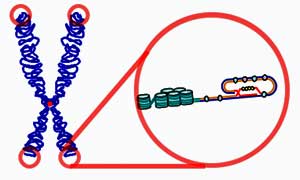



(A continuing series of blogs on “The Last Best Cure“; one woman’s attempt to find joy and improve her health while battling an autoimmune disorder.)
“The good news is that we are not our thoughts.” – Clifford Saron, PhD, Center for Mind and Brain, UC Davis
People with Chronic Fatigue Syndrome and Fibromyalgia are advised to cut down the amount of ruminating they’re doing. But according to a large Harvard study, most of us — whether we’re healthy or ill — spend an extraordinary amount of time engaged in thinking about things other than what we’re doing.
We’re not ‘being here now’; we’re either thinking about something that happened earlier, or thinking ahead to the future, or we’re judging and assessing what’s before us. Our minds are darting around and around – here, there, and everywhere.
“A human mind is a wandering mind, and a wandering mind is an unhappy mind.”
The most shocking finding of the Harvard study was how damaging a wandering mind is to our happiness. They found that the degree to which our minds wander is inversely proportional to how happy we are.
That flitting mind that doesn’t seem to want to settle down on anything has been a part of my ME/CFS since the beginning, and perhaps for good reason. The cognitive findings in ME/CFS such as slowed information processing, reduced ‘working memory’, and difficulty turning off attention to innocuous stimuli suggest the disease has set the stage for a wandering mind.
Research in healthy people may provide some clues as well. Werner Erhard once said, “Thoughts are mostly about bad stuff.” Studies show that about seventy percent of the things that happen to most people during the day are ‘relatively good’, 28% are neutral, and 2% are actually bad. Yet we spend most of our time ruminating and worrying about or getting upset by the 2% bad stuff. It’s not as if we’re deliberately thinking about the bad stuff; it’s more as if it is ‘thinking us’. Our worries and our fears tend to grab us tightly and not let go.
If that’s true for healthy people, how much more must it be true for the chronically ill who have more bad stuff to deal with.
Donna knows intimately how easy it is to let the bad stuff take over, but she’s had flashes of experience with the other side as well. She knows that joy works, and that contentment helps both mentally and physically. She remembered a time when a moment of intense joy momentarily ‘released her body’ from the grip of her illness. Her legs were still cold, blue and numb, but they also felt alive and tingling for the first time in ages. At that moment she saw the possibility of healing.
Others have experienced similar situations. A moment of intense joy that rippled through and enlivened his body left Johannes Starke intuitively feeling that he was on the path to wellness. Dan Moricoli experienced a similar situation while walking down the hall of a building one day; he said it left a smile on his face that hasn’t left.
Like Donna, neither are fully recovered, but both have made major strides in their health and well-being. Both have also devoted significant time to the type of meditative and mind/body practices Donna is beginning to undertake, and both, importantly, are diligent at pacing themselves.
Referencing Moments of Joy and Contentment – At Will
Donna’s goal is to be able to reference those moments of joy and contentment at will. Instead of those negative feedback loops which have gripped her, she wants to create positive feedback loops that leave her feeling contented, joyful, and more alive — all the time.
The DNA Link
It’s not just that she wants to feel better; she recognizes that being angry, worried, etc., has physiological costs that she wants to avoid. We often talk about problems with the two stress response axes in ME/CFS and FM: the sympathetic nervous system and the HPA axis. Another stress marker, however, has been implicated in both disorders that sits very close to home genetically – our telomeres.

Shortened telomeres have been associated with more pain with Fibromyalgia and telomere length was significantly reduced in the subjects of a CDC Chronic Fatigue Syndrome study presented at the 2014 IACFS/ME Conference in San Francisco. There’s no telling how much the shortened telomeres reflect the stress of having an illness (associated with problems with the stress response), or result from the illness itself, or both. A 2003 study finding of reduced telomere length in athletes with ‘exercise induced chronic fatigue’, for instance, suggesting that muscle damage was the culprit. This outlined another possibility for ME/CFS or FM.
Reduced telomere length has also been considered a sign of premature aging and has been associated with increased incidences of disorders ranging from arthritis to osteoporosis to heart disease to depression. Having traumatic events in childhood and ‘stress’ is also associated with shorter telomeres in adults.
Stress is a pretty malleable concept. Mothers caring for disabled children face considerably increased stress levels, but it was the mothers who felt they were under the most stress who had the shortest telomeres. Given that, it wasn’t surprising to find that dedicated meditaters have higher levels of an enzyme (telomerase) that can lengthen our telomeres.
Mind-Cell Connection
“I like the idea that my brain talks to my DNA.”
That led Donna to suggest that “if we’re not our thoughts, then we can change our thoughts and if we can change our thoughts, maybe we can change our cells” as she referred to the ‘damaging chemical cocktail’ our body pumps out when we’re under stress.
Donna proposed that the more that she perceived her life as being “really okay”,’ i.e., the more she reduces the resentments, worries, judging and worst-case scenarios that have been coursing through her for years, the better chance her cells have to “restore and rejuvenate”.
I’ve been doing a practice where I take a stand that there’s no such thing as right or wrong; that things just are as they are. That practice provides for me a different (and for me healthier) view or context from which to view the world. It provides “okayness” in the midst of all the turmoil I associated with having ME/CFS. It’s not easy – many times these practices seem feeble in the face of the onslaught of worries, fears, and upsets that are present, but at other times they provide real contentment and peace.
Reconstructing Experience
As Dr. Saron at the Center for Brain and the Mind at UC Davis states, these types of practices help to “deconstruct” our reactive responses and reconstruct our experience. The practice I’m currently doing allows for contentment to occur where struggle and upset occurred before. It doesn’t cure me of ME/CFS, but it’s clear that it helps my body a bit.
Studies suggest that practices such as these reduce cellular stress and increase the lengths of our telomeres, allowing our cells to survive longer and perhaps for us to age less quickly. Several ME/CFS and FM studies suggest parts of our bodies may be aging more rapidly than normal.
Studies also show that meditation/mindfulness increases the strength of the pathways in the brain that reduce our emotional reactivity, improves concentration, and even reduces age-related decline of the amount of gray matter in the brain.
The Reactive Mind – A Normal Response?
This reactivity, by the way, is a normal response. It’s the minds response to a body that’s seeking somehow to achieve balance and health. Of course you’re worked up when you’re unhealthy. Of course your mind – absolutely astonished at what has happened to your body and life – is running at a hundred miles an hour. We are all of us, all the time, swept up in an enormous upset.
Not being able to exercise or even go on walks or make a living was never part of the plan. Being in pain was never part of the plan. Weakness was not what we expected. If all that had been part of the plan, that would be one thing, and we’d have a chance – but the plan was to be healthy, a contributing member of society, to have a family and follow the American dream.
Of course our minds are absolutely appalled at what’s happened. But being at odds with ‘what is’ not only makes life much more difficult, but it reduces our ability, as Donna puts it, to handle our situations with “more awareness and creativity”.
The good news is that we can change that mental orientation – and in the next chapter Donna begins her work on doing that.
The Wandering Mind Poll
- Check out more of the Last Best Cure Blog series here
__________________________________________
Donna Jackson Nakazawa is a science journalist, author, and public speaker. She tweets often about breaking medical news. Follow her tweets and check out her Facebook site and website and blog.
She is the author of the The Last Best Cure, The Autoimmune Epidemic, and Does Anybody Else Look Like Me? A Parent’s Guide to Raising Multiracial Children as well as a contributor to the Andrew Weil Integrative Medicine Library book, Integrative Gastroenterology, (Oxford University Press, April 2010).
Among others she is the recipient of the 2010 National Health Information Award, the 2012 international AESKU Award from the International Congress on Autoimmunity for her lifetime contribution to autoimmune disease research with the book The Autoimmune Epidemic.









And lo and behold, when you Google for more information on Telomeres, look what comes up near the top of the search results:
Lifestyle Changes May Lengthen Telomeres
http://www.ucsf.edu/news/2013/09/108886/lifestyle-changes-may-lengthen-telomeres-measure-cell-aging
“A small pilot study shows for the first time that changes in diet, exercise, stress management and social support may result in longer telomeres, the parts of chromosomes that affect aging……”
Maybe CFS/FM is curable or manageable to some extent…….? I would be the first to argue this from my own experience. I am still debilitated (FM), but I honestly think I could be a lot worse if it were not for my own efforts in lifestyle, employment type (I have been lucky here), diet (very strict), exercise and stretching program, enjoying music, enjoying convivial company, etc etc
I would love to know if there is any site with a collation of “positive stories” from people who have managed their FM to some extent, to give hope to others about what is possible.
A recovery stories section is coming up on Health Rising….
I do agree that we have over active minds but rather than wandering, I believe them to be highly analytical (be it positive or negative). I see this purely as a mechanism for escape from our suffering bodies. We tend to live in our head in order to ignore the discomfort of the body. Regular meditation to still our minds is necessary or, as I have found, you end up in a big flare that forces you into a meditative state. As for “intense joy” being helpful, I would say that anything intense is not good for us. If I get too excited or joyful, I end up with PEM. What goes up, must come down. I believe we need to keep our emotions fairly neutral. This is where I find that following a Taoist philosophy is helpful. To find a middle road and not be too extreme in anything.
Absolutely agree with you Tricia. If ever I have really looked forward to doing something nice, I have always had a flare up on the day.
I have been a Taoist and a meditator since before I got ME.
I agree with Tricia. Getting to neutrality is what helps the most, in general and with ME. It’s acceptance of what IS that helps us cope with what is.
I’d say that’s probably true for anyone, sick or healthy, and not special to ME.
Getting excited about something does spark the same reaction as overdoing it for me….I agree about the middle path….-it’s a pretty darn narrow one though 🙂
The “Wandering Mind Poll” doesn’t adequately capture my experience. With respect to the second comment (When I feel joyful I notice that my body tends to feel better as well), I’d generally say that I “Somewhat agree”, at least in the moment. But, since feeling joyful for me is usually associated with “doing” (hobbies, productive activity, socializing, passive entertainment, etc.), and since I experience worsened pain and other symptoms plus increased disability after any activity, the payback for the initial “joyful” feeling is invariably less joy for a period of time until I’ve rested enough to recover somewhat. After 25 years with this illness, I guess I still haven’t evolved enough to feel joyful while doing almost nothing, and feeling like crap!
I know exactly what you mean…It’s a tricky situation for sure.
my mind inevitably wanders away from any suggestion that I might think myself better
Any excitement will bring on PEM for me, because any high emotion uses a lot of energy quickly. I have learnt to look for contentment and satisfaction rather than joy and happiness. Its improved my ability to not let my emotions control me, whence I immediately become a liability to myself and others.
Its useful to see how the rest of society values the drugs of excitation, addiction to all that feeling. I cant stand it, literally, and keep out of the way of people like that as they generally want you to feel the same way as them, then malign you for not reacting as they want. I like my peaceful life, and when recovered (31 years so far) will continue to pursue that peace.
Hi hopefully its a good day, I agree that fibro and gang can be a right pain and talking in your head or wandering is almost a constant part of our lives. What I try to do is get a different conversion going think about anything else other than whats on a loop. Not easy when you body is hurting or your feeling rubbish juggling of your energy, I would say eat something nice but its probably not good for you good luck.